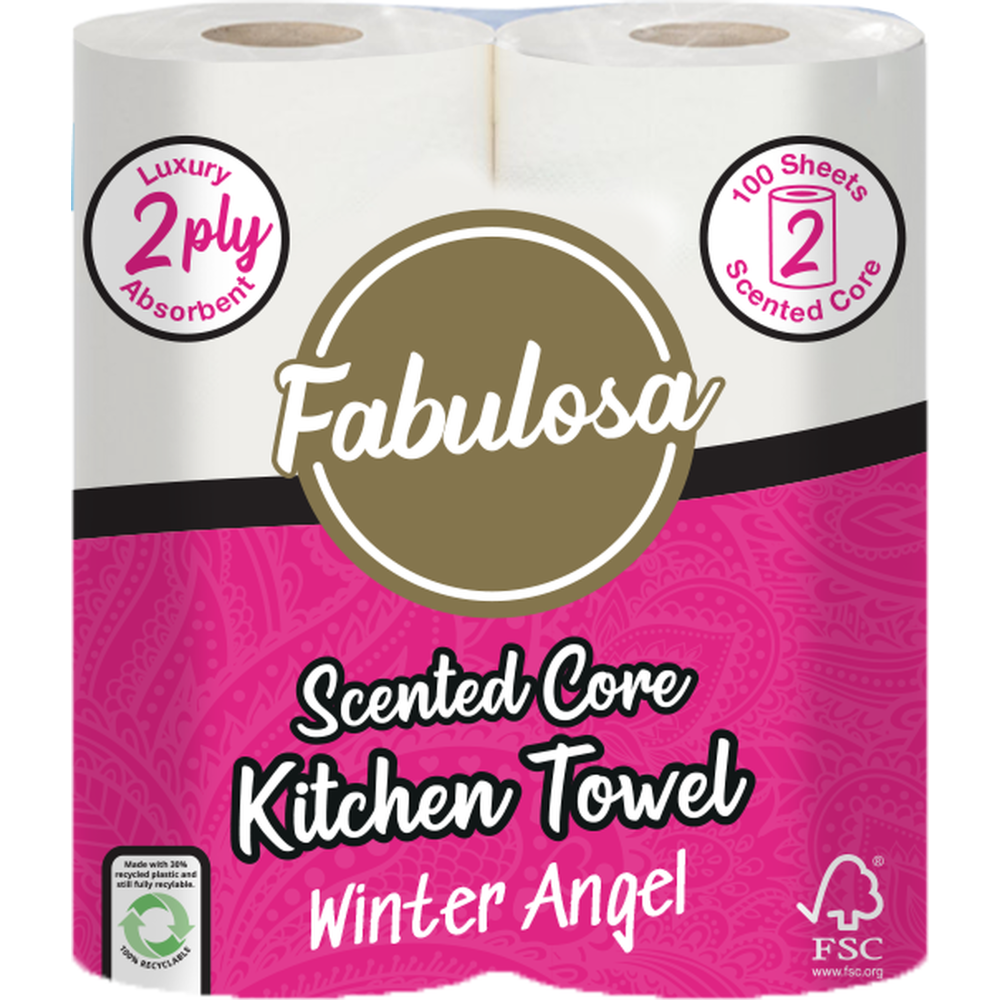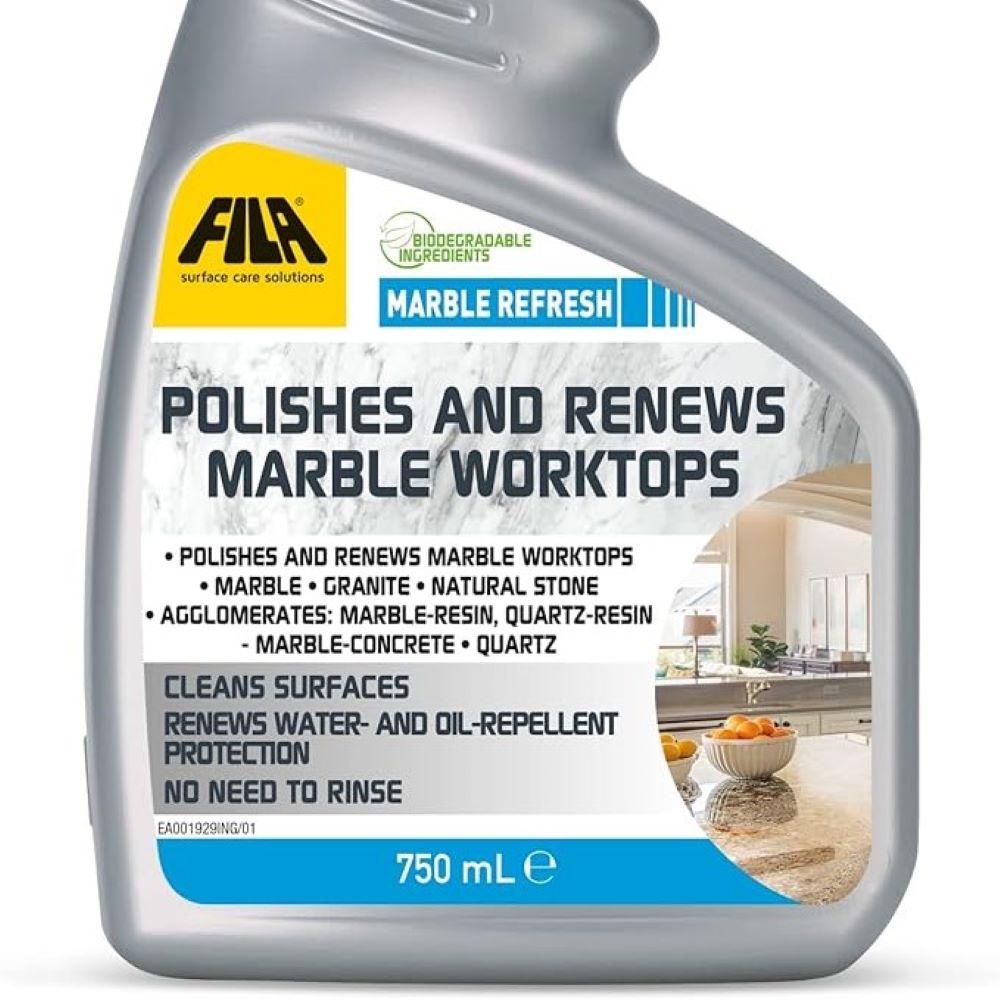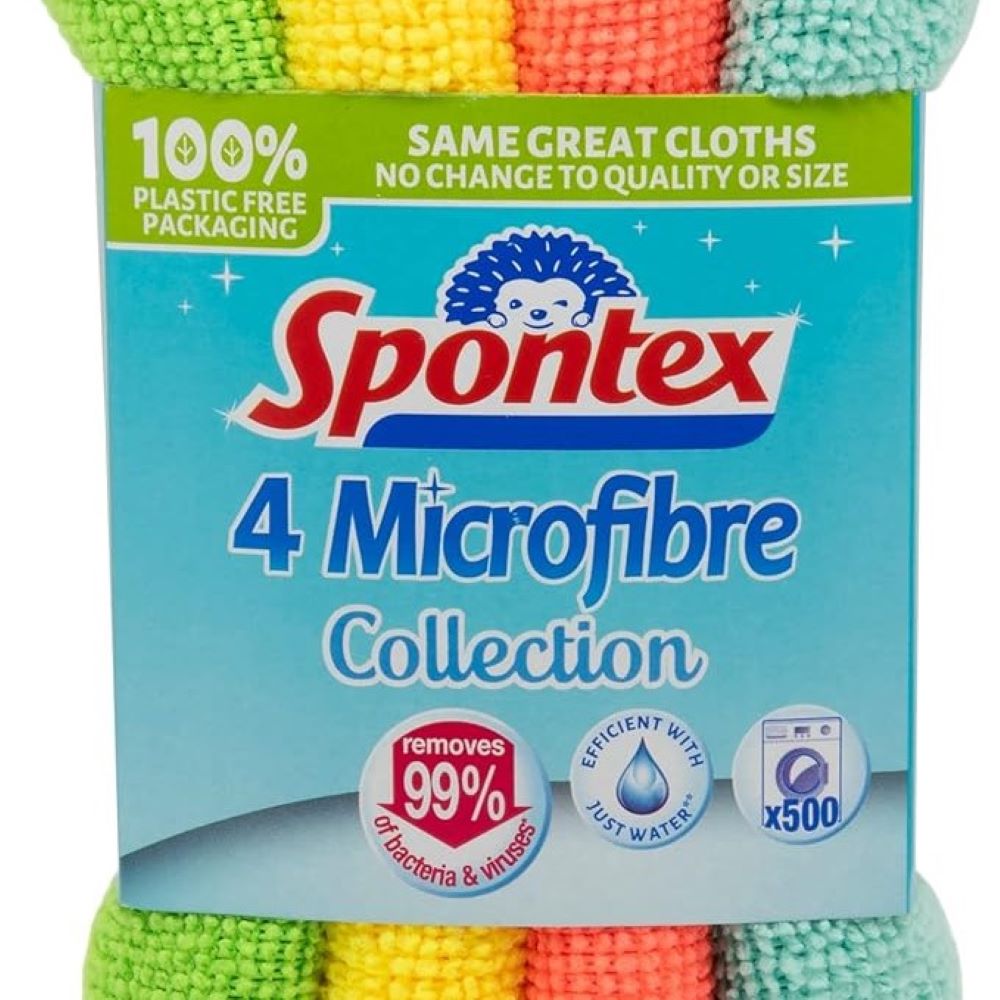How to clean marble worktops so they sparkle and shine
Here are the do's and don'ts of cleaning marble worktops to get them shining and stain-free

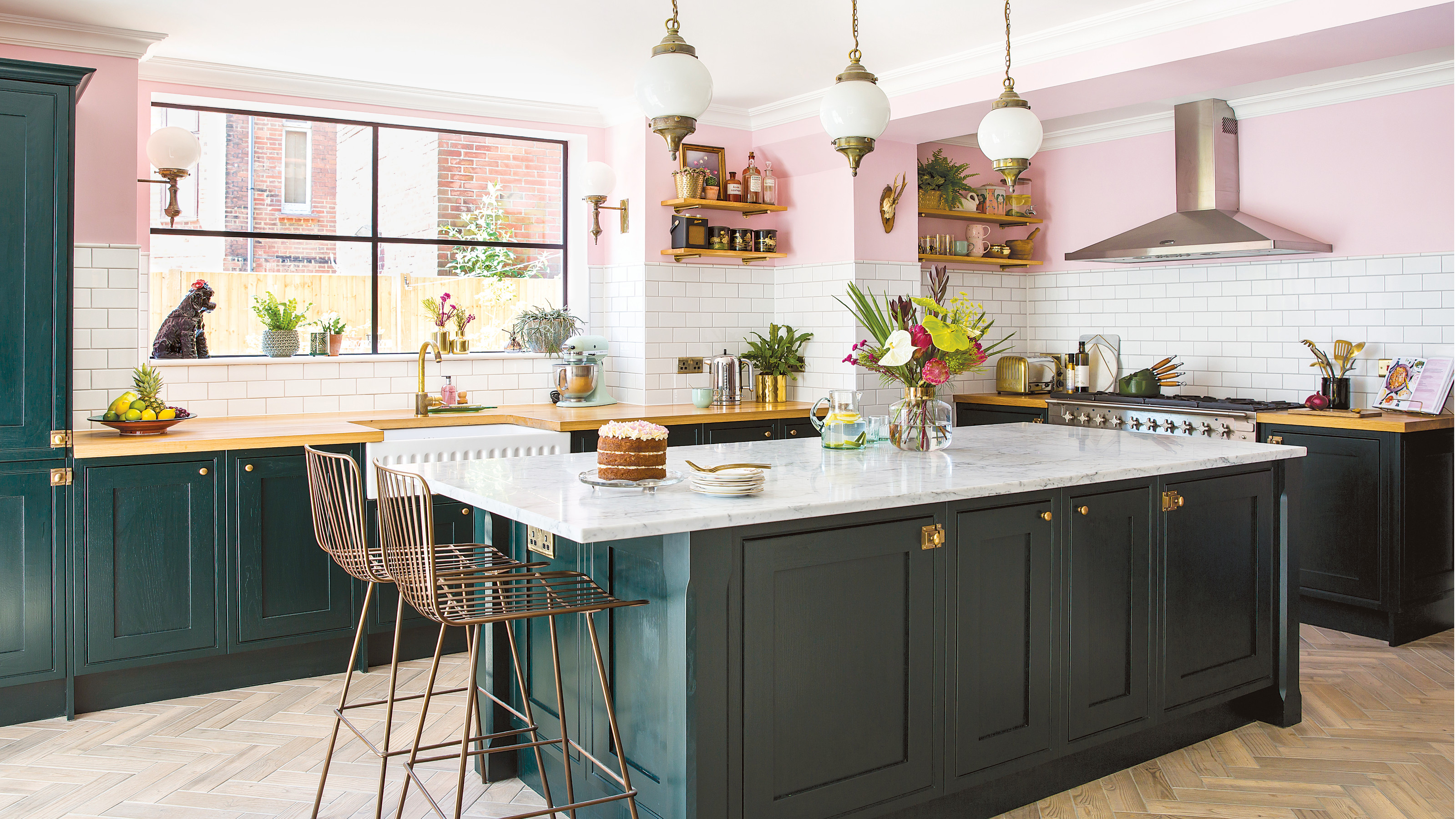
Sign up to our newsletter for style inspiration, real homes, project and garden advice and shopping know-how
You are now subscribed
Your newsletter sign-up was successful
If you're lucky enough to have marble worktops in your kitchen then you'll be wishing you could keep them looking as good as new. If you want to protect your investment and keep it in great condition for years to come you need to learn how to clean marble worktops.
It's important to know the best way to clean any kitchen worktop ideas, but marble requires an extra special hand. This delicate stone needs to be handled carefully, and there are some do's and don'ts if you want to keep it in tip-top condition.
Knowing how to clean marble worktops properly will ensure you avoid causing any unwanted damage to your beautiful kitchen countertops. Plus, the marble will be shining gloriously once again.
How to clean marble worktops
Marble worktops are timeless and classic, yet they've still managed to make their way into the hottest kitchen trends of 2024. If you want this stunning stone to last a lifetime, you need to make sure you're doing all the right things when cleaning it.
Just like there are oven-cleaning mistakes, there are marble-cleaning mistakes too. Here's what the experts recommend you avoid - and embrace - when learning how to clean marble worktops.
1. Clean regularly with gentle soap
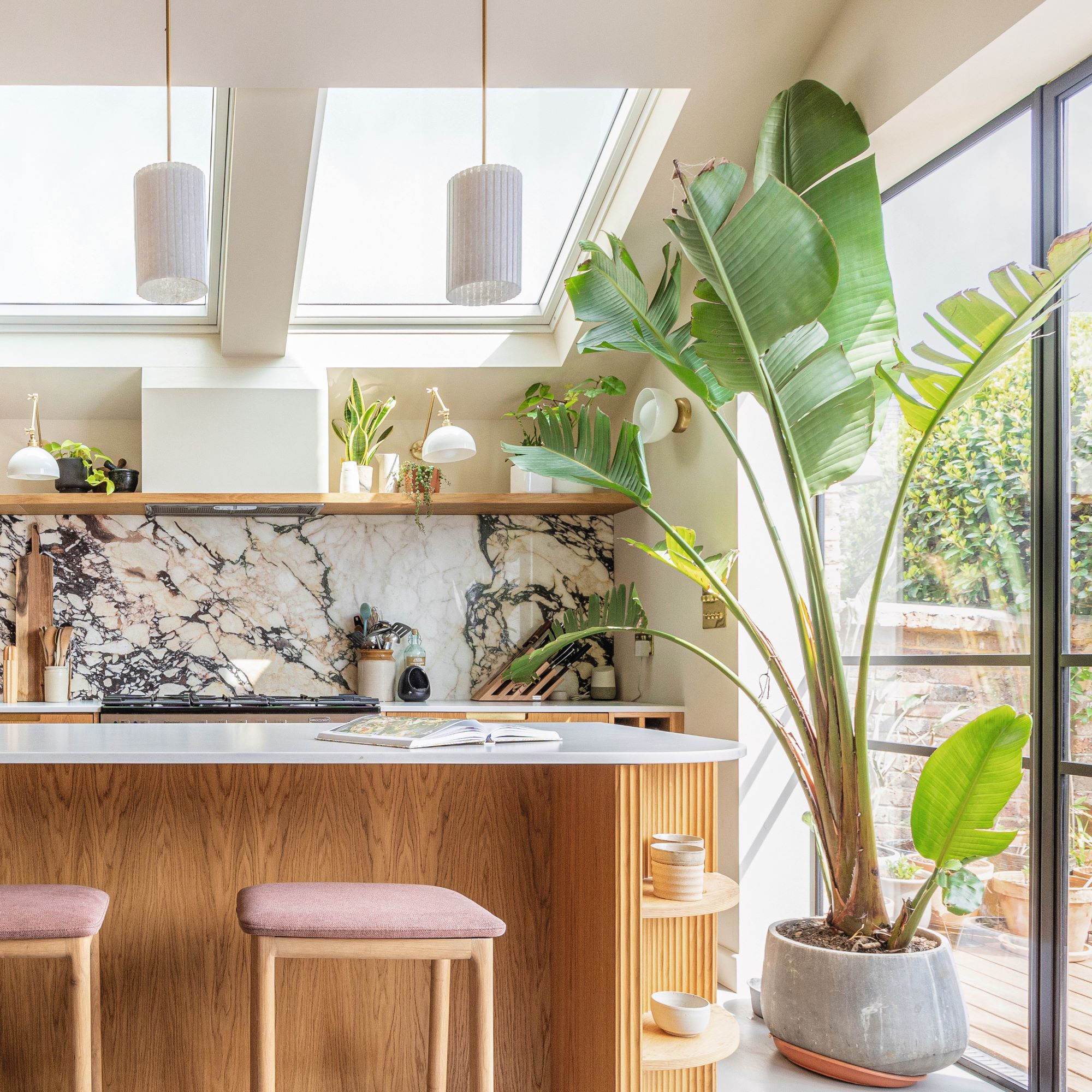
'In cases where you’re wanting to give your marble countertops a general clean, using soap and warm water should be sufficient enough to get the job done,' says cleaning expert from Drench, Nancy Emery. 'Once the water and soap are on the surfaces, dry with an absorbent towel.'
It's better to use washing-up liquid or soap to clean marble worktops rather than disinfectant sprays, as these may contain ingredients that can wear away the stone. And while we're a big fan of cleaning with vinegar, we don't recommend it for marble worktops, as its acidity can cause irreversible damage.
Sign up to our newsletter for style inspiration, real homes, project and garden advice and shopping know-how

Nancy has worked in the lifestyle sector for 17 years and is Drench's resident home expert. She has written articles on numerous topics including: home, interiors, cleaning, parenting, life, food, fashion, beauty and more. She has represented Drench as a cleaning and bathroom expert for the last 2 years.
2. Prevent stains from forming as much as possible
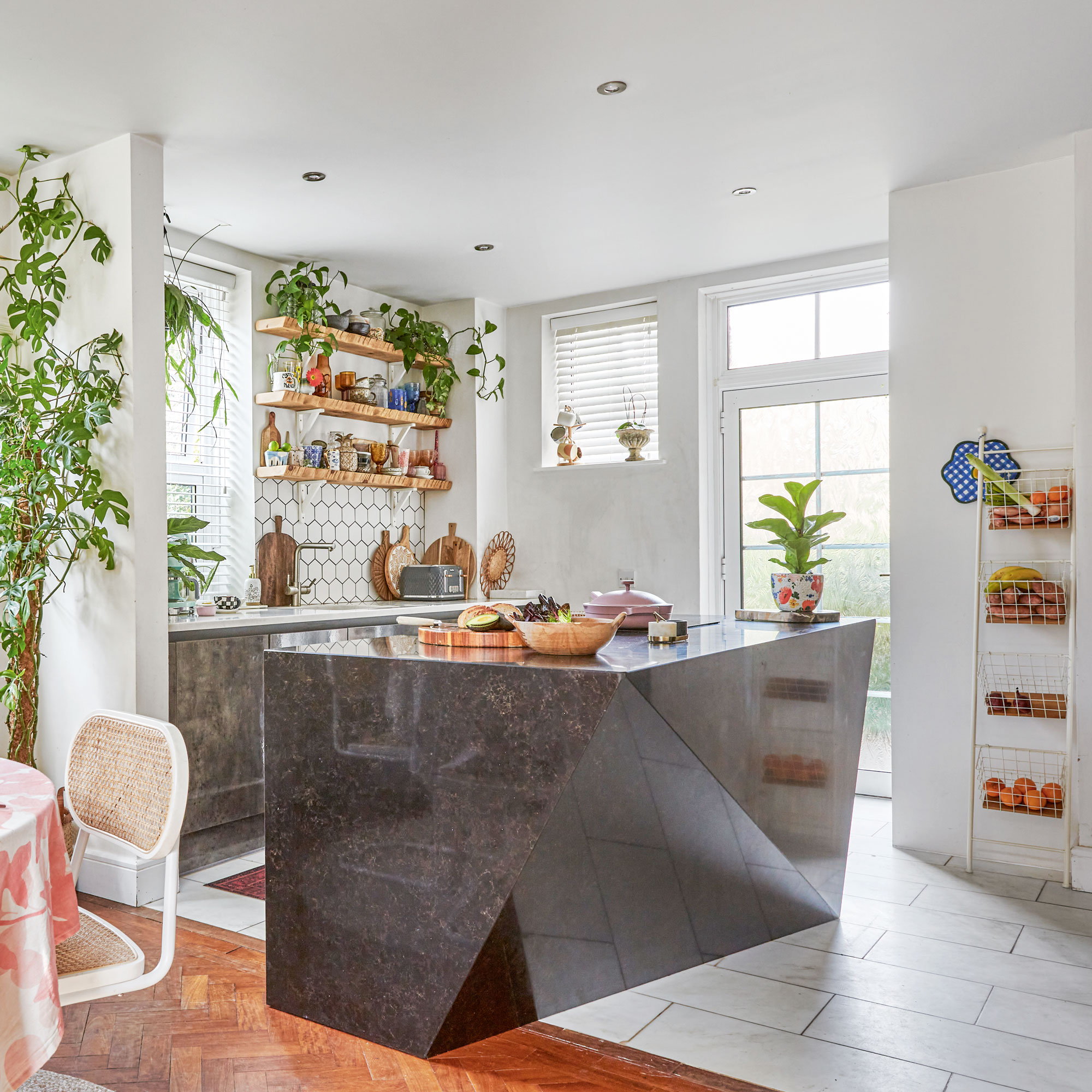
What about learning how to clean marble worktops that are carrying stains? While a quick wipe down with warm water probably isn't going to cut it here, don't be tempted to go in with abrasive scourers and a harsh scrubbing technique.
Firstly, prevention is key. 'When it comes to surfaces, especially delicate materials such as marble, ensure you're using coasters, placemats and trays to minimise risk of spillages or marking,' says Chloe Barker, Dr. Beckmann. 'Also consider applying protective coating and protectors to create a barrier against potential stains.'
'If possible, try to deal with any type of food or drink spill immediately to prevent hardening or staining from occurring,' adds Lawrence Akpiruo, Cleaning Expert from at-home cleaning service Wecasa. 'Warm water and a soft cloth can be all that are required if it’s a fresh spillage.'
3. Removing stains that do occur
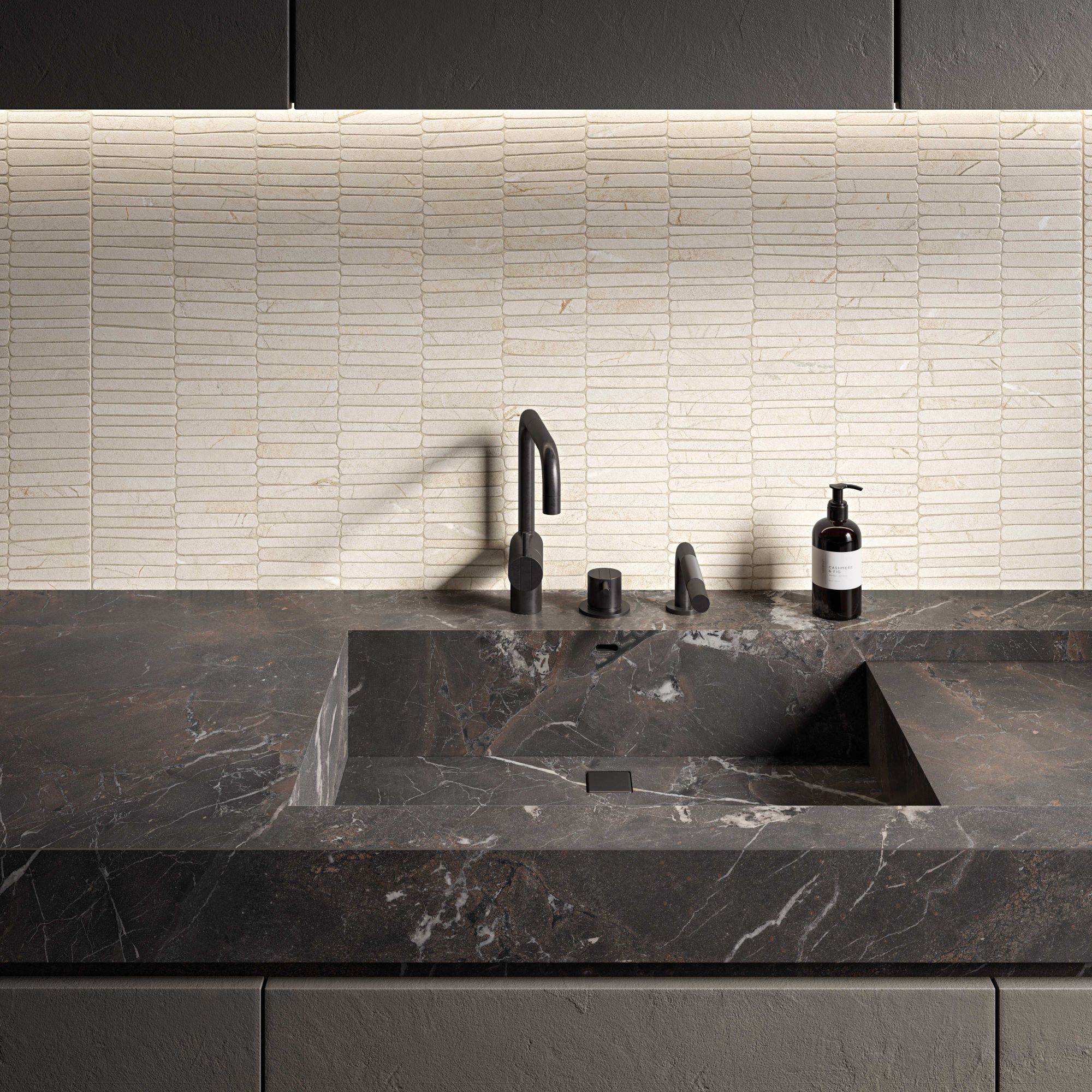
If there is a stain or two blemishing your beautiful marble worktop, you can remove them with the right method. Opt for a pH-neutral stone cleaner, as this is mild enough not to strip the sealer, but it will still get rid of any grease and stains. Alternatively you can mix baking soda with water to create a paste.
'Spray (or wipe) your cleaning solution directly on the stain and immediately dry the area with a soft, dry cloth to prevent water stains,' Nancy advises. 'If you feel like it, use buffing motions to heighten your countertops' shine appeal.'
Don't be tempted to skip the drying stage at the end. 'Natural stone absorbs moisture so if it’s left to air dry it can start to fade and look dull,' Lawrence from Wecasa explains. 'Always make sure to dry off any leftover water or fluid after you've finished cleaning.'
4. Removing tougher stains

Really stubborn stains may require an additional step when learning how to clean marble worktops. 'Sometimes, you may need a paste made of liquid cleaner and a white absorbent material such as powdered chalk or white molding plaster,' says Nancy. 'Mix together your absorbent material with a liquid cleaner until it forms a paste. Spread a thick layer of this over the stain and allow it to sit for 24 hours, before gently wiping away the paste .'
Repeat this process if necessary and your marble worktops should be sparkling clean again.
FAQs
Does baking soda remove stains from marble?
Baking soda is an effective cleaner for marble worktops, and it's usually successful at removing stains. Some experts prefer to use baking soda over specially-designed marble cleaning products, as it's natural and single-ingredient.
'If spillage has gone unnoticed and has created a stain, I like using natural products – just avoid vinegar as it’s much too acidic,' says cleaning expert Lawrence Akpiruo. 'I start with baking soda and water to create a paste, leave it for a few minutes (sometimes it needs longer), and gently scrub the stain with a soft cloth. This should see it disappear.'
Lawrence adds, 'there are so many cleaning products specific to marble in the shops, which can be handy to have on hand. However, natural products (water or baking soda) and a soft cloth is really all you need.'
What not to use on marble worktops?
When learning how to clean marble worktops, acidic ingredients like vinegar should be avoided, along with bleach. These chemicals are too harsh for marble, and they will wear the stone away over time.
'Avoid using harsh cleaners such as abrasive scrubbers, scouring pads and rough cloths, as these are likely to damage and scratch the marble,' says Nancy from Drench. 'Whilst natural remedies can seem like a good option, don’t use vinegar or lemon juice to clean your marble as the acidity can eat away at the stone and the damage can actually be irreversible.'
Now you know how to clean marble worktops, you can admire them as they shine and sparkle all year long!

Katie has been writing freelance since early 2022, specialising in all things homes and gardens, following achieving a Masters in Media and Journalism. She started out writing e-commerce content for several of Future’s interior titles, including Real Homes, Gardeningetc, Livingetc, and Homes and Gardens. Since then she’s been a regular contributor on Ideal Home’s digital team, covering news topics, how-to guides, and product reviews.
